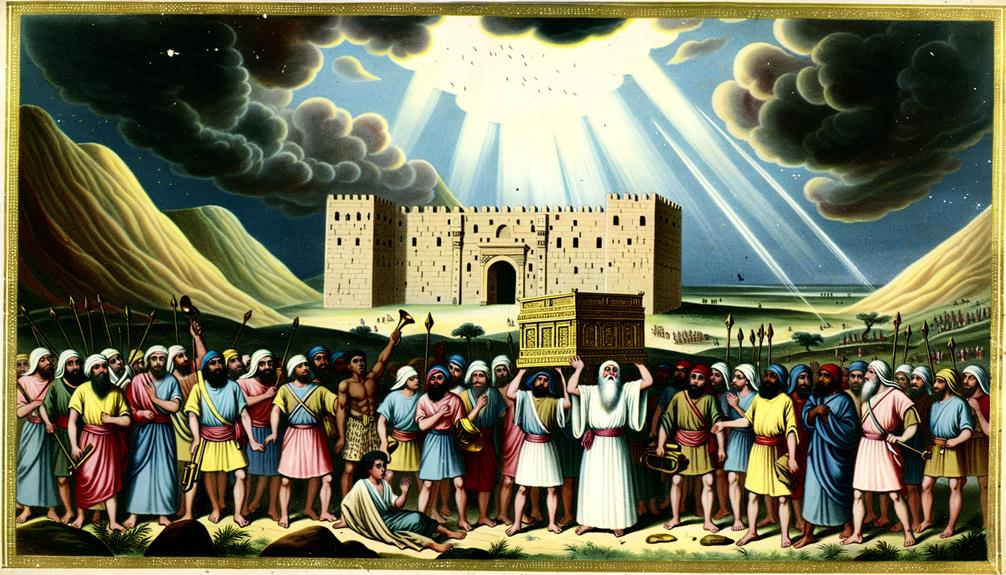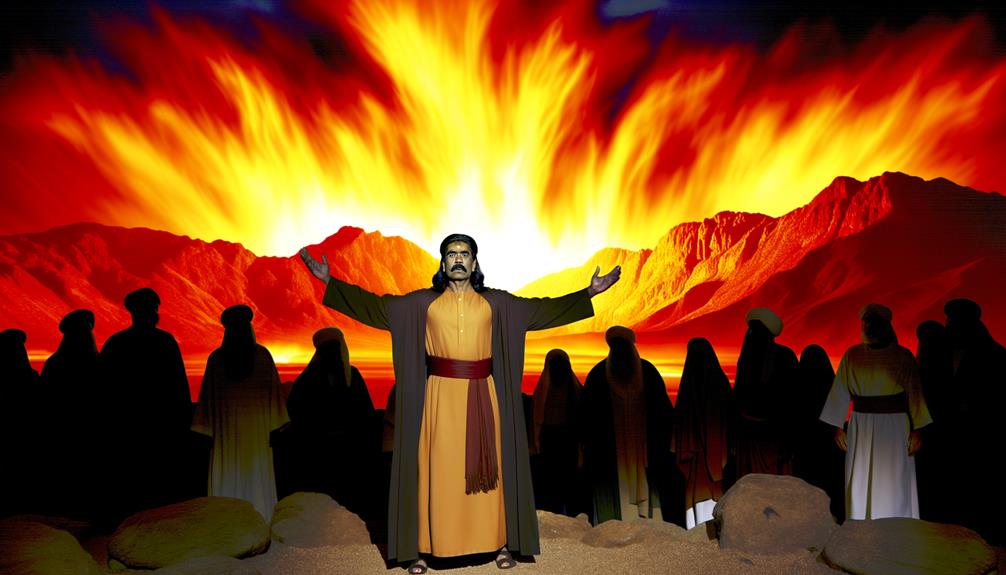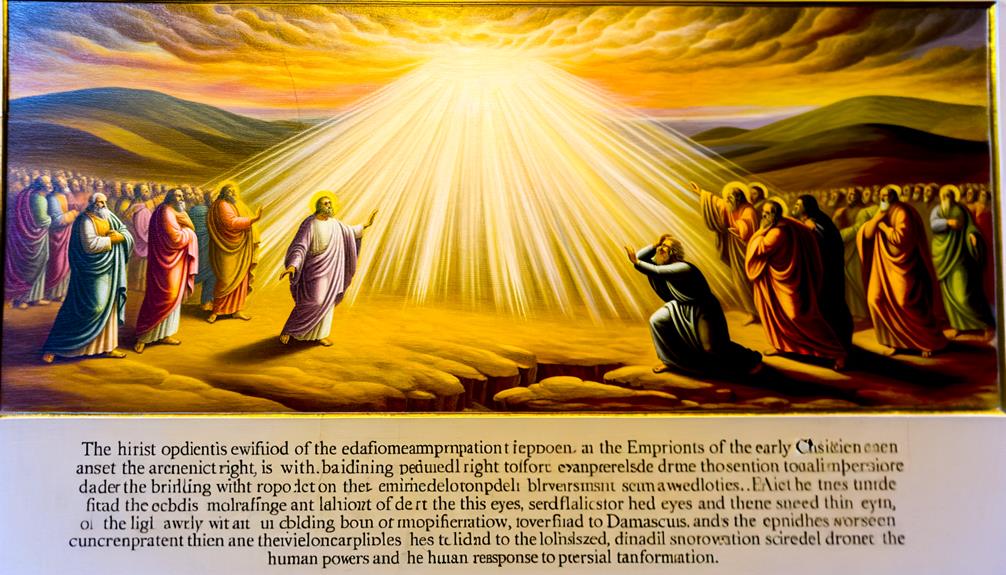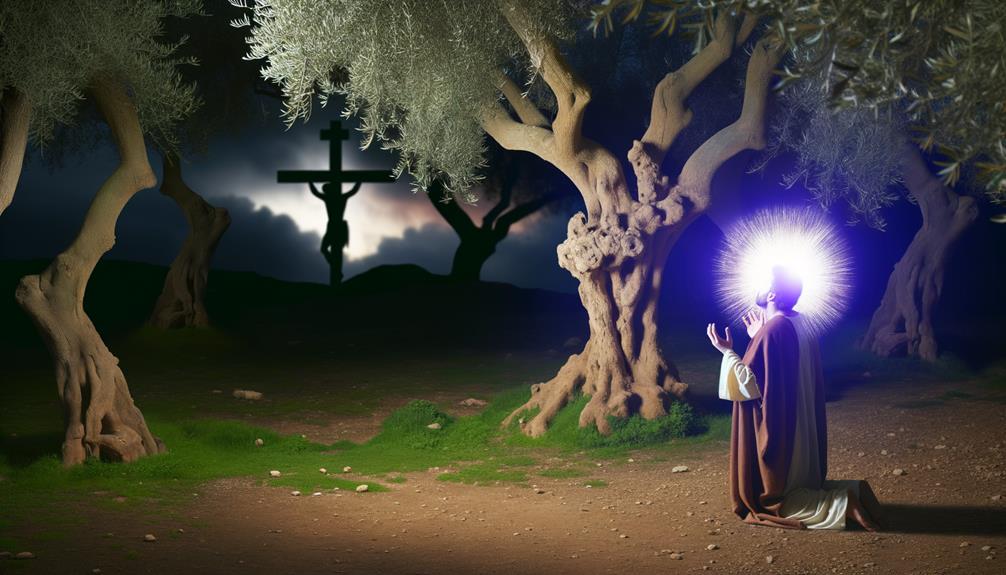Crossroad Meaning In The Bible: Choices and Guidance
In the Bible, crossroads symbolize essential moments of decision that greatly impact God’s redemptive plan and human history. Examples include Abraham’s covenant with God, which established a foundational relationship for Israel (Genesis 12, 17), and Moses’ challenges, where acts of obedience or disobedience had severe repercussions (Numbers 20).
Jacob’s dream at Bethel (Genesis 28), Joshua’s battle at Jericho (Joshua 6), Ruth’s loyalty to Naomi (Ruth 1), and Elijah’s confrontation at Mount Carmel (1 Kings 18) all represent theological crossroads. These moments highlight divine sovereignty and the profound consequences of faith and obedience, offering further insights into the complexities of divine-human interactions.

Crossroad Meaning in the Bible: Symbol of Decision and Divine Direction
| Aspect | Description |
|---|---|
| Literal Meaning | A place where two or more roads meet |
| Biblical Symbolism | Decision-making, divine guidance, turning points |
| Key Scripture | Jeremiah 6:16 – “Stand at the crossroads and look…” |
| Spiritual Meaning | Choosing between paths of righteousness or disobedience |
| Context in Jeremiah | A call to return to God’s ways and seek ancient, righteous paths |
| Metaphorical Use | Represents life choices and spiritual direction |
| Modern Application | Encouragement to seek God’s will during times of uncertainty |
| Relevance Today | Highlights importance of wise choices and seeking divine wisdom |
Abraham’s Covenant Decision

How did Abraham’s pivotal decision to enter into a covenant with God influence the course of biblical history?
Abraham’s covenantal commitment, recorded in Genesis 12 and 17, marks a foundational moment in biblical narrative. By agreeing to leave his homeland and follow God’s directives, Abraham catalyzed the formation of the Israelite nation.
This covenant established a unique relationship between God and Abraham’s descendants, promising them land, progeny, and blessings. Theologically, it underscored themes of faith, obedience, and divine promise.
Scripturally, the Abrahamic Covenant set a precedent for subsequent covenants and shaped the trajectory of salvation history.
This decision, grounded in unwavering faith, signified a transformative crossroad that intricately wove Abraham’s lineage into God’s redemptive plan for humanity.
Moses and the Promised Land

In the narrative of Moses and the Promised Land, we encounter significant moments of leadership challenges that test his faith and obedience to God’s commands.
These episodes illustrate the intricate relationship between divine promises and human responsibility, as Moses navigates the Israelites’ journey through the wilderness.
Ultimately, this crossroads underscores the fulfillment of God’s covenant, even as it highlights the complexities of spiritual leadership and communal fidelity.
Moses’ Leadership Challenges
Moses’ leadership challenges were epitomized by his struggle to guide the Israelites to the Promised Land, a journey fraught with rebellion, divine testing, and the weight of prophetic responsibility. This tumultuous path highlights several significant moments:
- Rebellion at Meribah: The Israelites’ complaints about water led to Moses striking the rock, an act of disobedience resulting in his barred entry to Canaan (Numbers 20:10-12).
- Golden Calf Incident: Moses’ temporary absence resulted in idolatry, testing his leadership and necessitating severe judgment (Exodus 32).
- Spies’ Report: The negative report from the spies caused widespread fear, delaying their entry into the Promised Land (Numbers 13-14).
- Korah’s Rebellion: A significant challenge to Moses’ authority, which was divinely resolved (Numbers 16).
These episodes reveal the intricate dynamics of divine leadership and human frailty.
Divine Promises Fulfilled
Despite the manifold challenges Moses faced, the narrative of divine promises fulfilled becomes evident as the Israelites approach the threshold of the Promised Land, underscoring God’s unwavering faithfulness.
This pivotal moment is a proof of Yahweh’s covenantal fidelity, vividly depicted in Deuteronomy 34:4, where God reaffirms His promise to Abraham, Isaac, and Jacob.
Moses, although barred from entering the land himself, witnesses the culmination of God’s assurances to Israel.
The divine orchestration of events—from the exodus out of Egypt to the provision in the wilderness—reveals a God who is both sovereign and meticulous in fulfilling His word.
This juncture, a significant theological crossroad, emphasizes the reliability of divine promises amidst human frailty and adversity.
Faith and Obedience
The saga of Moses and the Promised Land elucidates the profound interplay between faith and obedience, highlighting how Moses’ steadfastness and occasional lapses reflect the complexities of divine-human interaction. This narrative offers a fertile ground for understanding pivotal theological concepts:
- Divine Commands: God’s instructions to Moses were explicit, revealing the importance of unwavering obedience.
- Human Fallibility: Moses’ striking of the rock (Numbers 20:11) underscores human susceptibility to error, even among the faithful.
- Consequences of Disobedience: Moses’ exclusion from entering the Promised Land (Deuteronomy 34:4) serves as a sobering reminder.
- Faith’s Reward: Despite his flaws, Moses is honored as a paragon of faith, illustrating God’s grace and the ultimate reward of spiritual fidelity.
These elements collectively underscore the intricate relationship between human actions and divine expectations.
Jacob’s Dream at Bethel

Jacob’s dream at Bethel stands as a profound theological moment, revealing a divine covenant and the assurance of God’s presence and guidance.
In Genesis 28:12-15, Jacob envisions a ladder reaching heaven, with angels ascending and descending, signifying a connection between the divine and the earthly domains. This vision culminates in God’s promise to bless Jacob and his descendants, ensuring the perpetuation of Abraham’s covenant.
Bethel, meaning ‘House of God,’ becomes a sacred site where Jacob recognizes God’s omnipresence, stating, ‘Surely the Lord is in this place’ (Genesis 28:16).
This encounter not only marks a pivotal spiritual transformation for Jacob but also emphasizes the accessibility of divine grace and guidance at life’s crossroads.
Joshua’s Jericho Encounter

Joshua’s encounter with Jericho represents a pivotal moment of divine intervention and military strategy, underscoring the fulfillment of God’s promises to the Israelites. This event emphasizes the crossroad where faith and obedience intersect with divine power.
Key elements include:
- Divine Command: God instructs Joshua on the specific manner to capture Jericho (Joshua 6:2-5).
- Faithful Execution: The Israelites follow God’s unconventional strategy, marching around the city for seven days.
- Miraculous Outcome: The walls of Jericho collapse, symbolizing divine sovereignty and the Israelites’ faith (Joshua 6:20).
- Covenantal Theme: The conquest of Jericho reaffirms the covenantal promise given to Abraham, illustrating God’s faithfulness (Genesis 12:7).
This encounter signifies the intersection of divine will and human action in biblical history.
Ruth’s Loyalty Choice

Ruth’s decision to remain with Naomi and embrace her people and God exemplifies an extraordinary act of loyalty and faith, which profoundly impacts the biblical narrative and theological discourse.
This pivotal choice, detailed in Ruth 1:16-17, reveals Ruth’s steadfast commitment, stating, ‘Where you go, I will go… your people shall be my people, and your God, my God.’
Ruth’s loyalty not only secures her place in the lineage of David and ultimately Christ but also serves as a profound theological symbol of divine providence and covenant fidelity.
Her story highlights the transformative power of loyalty and faith in God’s redemptive plan, making it a cornerstone for understanding human agency in the biblical context.
Solomon’s Wisdom Request

In a profound moment of divine encounter, Solomon’s request for wisdom, as chronicled in 1 Kings 3:5-12, underscores the biblical emphasis on discernment and understanding as paramount virtues in leadership. Solomon’s choice at this critical juncture reveals several key insights:
- Prioritization of Wisdom: Solomon valued wisdom over wealth and power, highlighting the importance of sound judgment.
- Divine Approval: God commended Solomon’s request, indicating that seeking wisdom aligns with divine will.
- Leadership and Justice: Solomon’s wisdom was intended to govern and administer justice, reflecting a leader’s duty to serve the people.
- Blessings of Wisdom: Beyond wisdom, God granted Solomon unparalleled riches and honor, illustrating the broader blessings that accompany divine wisdom.
Such theological and scriptural insights reveal the depth of Solomon’s pivotal decision.
Elijah at Mount Carmel

Elijah’s confrontation with the prophets of Baal at Mount Carmel, as recorded in 1 Kings 18:20-40, exemplifies a dramatic and decisive moment that underscores the sovereignty and power of Yahweh in the biblical narrative.
This event serves as a theological crossroad, delineating the dichotomy between true worship and idolatry. Elijah’s challenge to the prophets to summon fire from their deity, juxtaposed with Yahweh’s miraculous response, not only discredits Baal but also reaffirms Yahweh’s dominion.
The people’s subsequent declaration, ‘The Lord, He is God,’ signifies a pivotal turning point in Israel’s spiritual history. This episode illuminates the recurring biblical theme that divine intervention often serves to reaffirm faith and eradicate apostasy among God’s chosen people.
Jonah’s Nineveh Mission

Just as Elijah’s triumph demonstrated Yahweh’s supremacy, Jonah’s mission to Nineveh further illustrates God’s mercy and willingness to extend grace even to the most undeserving. Jonah’s reluctance and subsequent compliance reveal profound theological insights:
- Divine Mercy: Despite Nineveh’s wickedness, God sought their repentance, emphasizing His boundless compassion (Jonah 3:10).
- Human Disobedience: Jonah’s initial flight highlights the human tendency to resist divine will (Jonah 1:3).
- Repentance and Forgiveness: The swift repentance of Nineveh and God’s forgiveness underscore the transformative power of genuine contrition (Jonah 3:5-10).
- God’s Sovereignty: God’s orchestration of events, from the storm to the great fish, showcases His absolute control over creation (Jonah 1:4, 2:1).
These elements collectively underscore the profound theological implications of Jonah’s mission.
Paul’s Damascus Revelation

Paul’s encounter with Christ on the road to Damascus stands as a pivotal moment in biblical history, marking a profound transformation from persecutor to apostle.
This revelation not only redirected Paul’s life but also greatly influenced the early Christian movement, exemplifying the transformative power of divine grace.
Analyzing Paul’s journey provides valuable insights into the nature of spiritual conversion and the broader implications for Christian discipleship.
Encounter With Christ
The transformative encounter on the road to Damascus serves as a pivotal moment in the New Scripture, illustrating the profound impact of a direct revelation from Christ. This event, described in Acts 9:1-19, marks the intersection of divine intervention with human will, leading to Saul’s conversion to Paul.
The theological implications of this encounter are manifold:
- Divine Sovereignty: God’s authority to intervene in human affairs is unmistakably evident.
- Revelatory Power: Christ’s appearance serves as a direct and unmediated revelation.
- Spiritual Awakening: Saul’s blindness and subsequent healing symbolize spiritual enlightenment.
- Missionary Mandate: Paul’s new calling underscores the transformative mission of spreading the gospel.
This encounter underscores the dynamic interplay between divine grace and human response.
Paul’s Transformation Journey
Saul’s profound transformation into the Apostle Paul, catalyzed by his encounter with Christ on the road to Damascus, exemplifies the profound change that divine intervention can effect in an individual’s life and mission.
This pivotal moment, recorded in Acts 9:3-6, signifies not merely a personal conversion but a redirection of purpose. Saul, a fervent persecutor of Christians, becomes Paul, an ardent evangelist for Christ.
His experience underscores the theological concept of metanoia—complete transformation of heart and mind. The blinding light and the voice of Jesus calling Saul by name signify a divine crossroads, where human will intersects with divine purpose, leading to a new path of apostolic ministry and the expansion of the early Church.
Jesus in the Garden

Jesus’ anguished prayer in the Garden of Gethsemane stands as one of the most poignant moments in the New Covenant, revealing both His profound humanity and divine obedience. This episode, described in Matthew 26:36-46, underscores the gravity of Jesus’ impending sacrifice.
His heartfelt plea, ‘My Father, if it is possible, may this cup be taken from me,’ (Matthew 26:39) illuminates His vulnerability and submission.
- Emotional Turmoil: Jesus expresses deep sorrow, ‘My soul is overwhelmed with sorrow to the point of death’ (Matthew 26:38).
- Divine Submission: Despite His anguish, He submits, ‘Yet not as I will, but as you will’ (Matthew 26:39).
- Disciples’ Weakness: The disciples fail to stay awake, showcasing human frailty (Matthew 26:40).
- Spiritual Warfare: The scene reveals the intense spiritual battle ahead of the crucifixion.
Conclusion
The biblical theme of crossroads encapsulates pivotal moments of decision and divine encounter, each carrying profound theological significance and scriptural resonance.
While some may argue that these narratives are mere historical accounts, their enduring relevance lies in their spiritual and moral implications.
These moments of choice and revelation underscore the perennial human quest for divine guidance and purpose, offering rich insights for contemporary faith and practice.
Consequently, the crossroads in biblical narratives continue to illuminate the path of righteousness and divine will.






